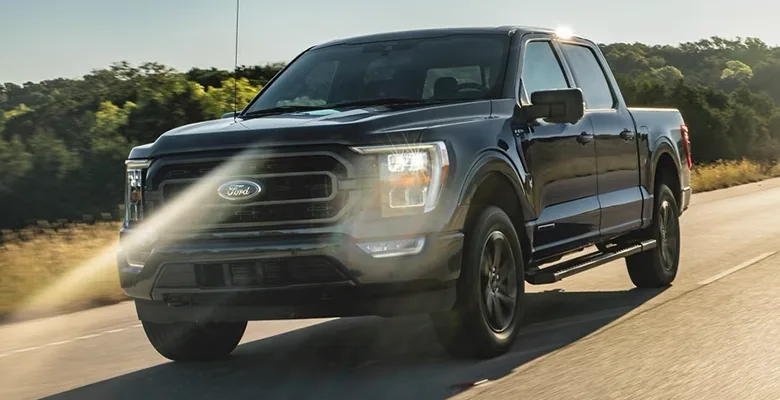
For many truck owners, the Ford F150 is more than just a vehicle; it’s a trusted workhorse that can handle a variety of tasks, from hauling heavy loads to cruising on long highway drives. However, with the ever-increasing cost of fuel and growing environmental concerns, maximizing fuel efficiency has become a larger priority for F150 owners.
Maintain Your Vehicle Regularly
One of the most effective ways to improve your F150’s fuel efficiency is by keeping it well-maintained. Regular maintenance checks at your Boswell Elliff Ford car dealership ensure that your car’s engine is running smoothly, and any issues that could negatively impact fuel efficiency are addressed promptly. Pay attention to:
- Changing the oil and replacing air filters regularly
- Keeping the tires properly inflated
- Checking for any fuel system leaks or issues
- Keeping the engine tuned up
By keeping your F150 in top shape, you can significantly increase its fuel efficiency.
Lighten the Load
The Ford F150 is known for its exceptional towing and payload capabilities, but carrying unnecessary weight can negatively impact fuel efficiency. Remove any unnecessary items from your truck bed and cabin to reduce weight. Additionally, when towing, try to keep your load as light as possible and avoid overloading. Your Ford dealership technicians may also be able to provide more suggestions.
Drive Efficiently
Your driving habits have a significant impact on fuel efficiency. Here are some driving techniques to maximize your mileage:
- Avoid aggressive driving: Rapid acceleration, hard braking, and high-speed driving can consume more fuel. Drive smoothly and maintain a steady pace.
- Use cruise control: On long highway drives, use cruise control to help maintain a consistent speed, which can save fuel.
- Limit idling: Idling consumes fuel without moving your vehicle. Turn off the engine when you’re parked for extended periods.
Choose the Right Fuel
Make sure you’re using the recommended fuel for your F150. Using the right type of fuel can improve engine performance and fuel efficiency. Refer to your owner’s manual to determine the appropriate fuel for your specific F150 model.
Plan Your Routes
Efficient route planning can help you avoid traffic congestion, road construction, and other delays that can result in wasted fuel. Consider using GPS navigation apps that offer real-time traffic updates and alternate routes to save time and fuel.
Aerodynamics and Accessories
- Roof Racks and Cargo Carriers: Roof racks, cargo boxes, and cargo carriers mounted on the roof can substantially increase aerodynamic drag due to their bulky shape and positioning. They disrupt the smooth airflow over the vehicle, leading to reduced fuel efficiency, especially at higher speeds.
- Roof-Mounted Spoilers: While rear spoilers can enhance aerodynamics when designed specifically for a vehicle, some aftermarket roof-mounted spoilers may create unnecessary turbulence and drag if not properly engineered for the car’s shape.
- Hood Deflectors and Bug Shields: These accessories, mounted on the front of the vehicle, can disturb the airflow over the hood, potentially leading to increased drag and reduced fuel efficiency.
- Fender Flares: Fender flares are often added to vehicles for aesthetic purposes or to accommodate larger tires. However, they can disrupt the smooth flow of air around the wheels and tires, increasing aerodynamic resistance.
- Lift Kits and Suspension Modifications: Lift kits and significant suspension modifications can alter a vehicle’s ride height, potentially creating a less aerodynamic profile. These changes can result in increased wind resistance and reduced fuel efficiency.
- Bull Bars and Grille Guards: Bull bars and grille guards, popular on some trucks and SUVs, can create turbulence and drag as they impact the airflow to the front of the vehicle.
Monitor Your Fuel Economy
Modern F150 models from your local car dealership often come equipped with advanced fuel economy monitoring systems. Pay attention to your car’s fuel economy readouts, and use this information to adjust your driving habits and make necessary improvements.
Maximizing fuel efficiency in your Ford F150 is not only beneficial for your wallet but also for the environment. Whether you’re considering a new purchase from your local car dealership or already own one, these tips and techniques can help you make the most out of your F150’s mileage. Small changes in your maintenance routines and driving habits can add up to significant fuel savings over time, ensuring that your truck serves you efficiently and economically.



